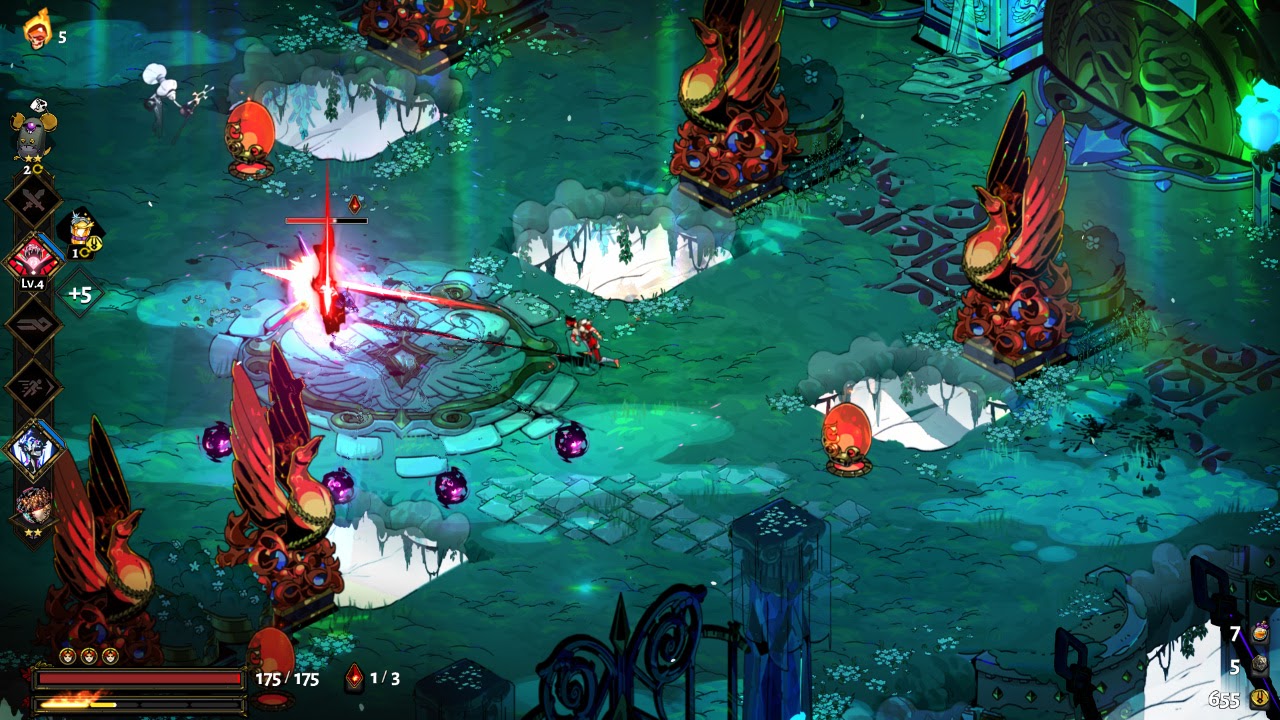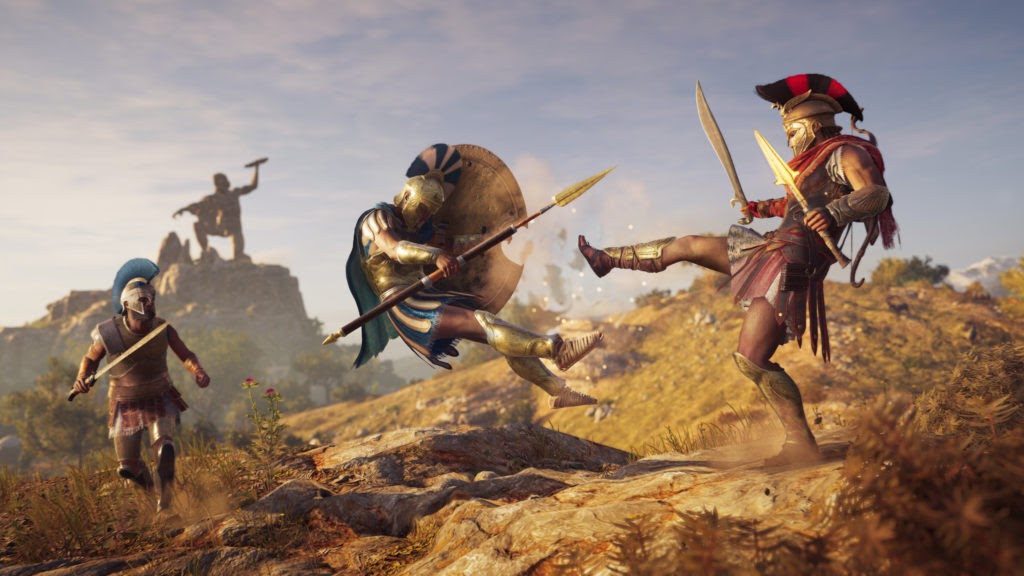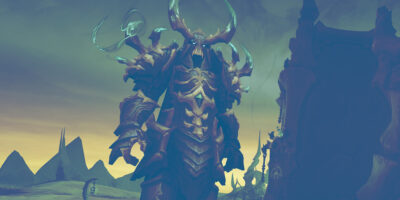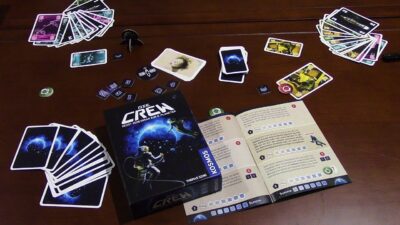In 2009 Steven Porfiri was accused of never having played a video game before by someone on a GameFAQs message board, and the insult has haunted him ever since. Now, as the Senior Games Writer for Merry-Go-Round Magazine, he’s finally been given a platform to prove that not only has he been playing video games, he writes about them as well. I Played a Game Once is an inside look into what he is playing, and how it has any bearing whatsoever on our current moment. It’s basically like Carrie Bradshaw’s column but with more discussions about save-scumming.
For the past week or so, I’ve been getting into ASSASSIN’S CREED ODYSSEY, because as I mentioned a few weeks ago in this column, I accidentally went and beat ASSASSIN’S CREED ORIGINS. So far I’ve been enjoying what I call the KFC RPG Doubledown, even though I fear that I’m not optimizing my gear as properly as the opening difficulty selector advised me to. Thank Zeus this thing doesn’t have a carry-weight system, because I have enough helmets I don’t care about to open a gently-used hat store.
But it hasn’t all been shadowy cults and leaps of faith in my gaming habits, oh no: it’s past the end of the year in video game land, and anyone that even pretends to be worth their salt spent the last few weeks frantically playing the games that came out last year that were hyped by the community in order to put together a Top 10 of the Year list. And one of those games I’ve been meaning to play was HADES.
We’ve published a review and a feature on HADES already, and this isn’t a piping-hot take like “HADES is actually bad and here’s why” or anything. HADES is good. You knew it was good, I had a strange premonition it was good—we know HADES is good. Despite a gameplay loop that should drive the player mad it offers enough new content with every run to avoid any sort of semblance to Sisyphean tedium, which would be ironic because Sisyphus is literally a character in this game. Each character is such a delight to meet and speak to that getting a boon is often that much more engaging. The game is so beautiful to look at from the levels to the character design that, again, you never feel tired running around in it.
But again: we knew HADES was good.

Every HADES screenshot looks like this and it’s honestly fine and good
You’ve probably picked up that both of these games are concerned with Greek mythology in varying ways. HADES, obviously, deals with the actual gods and heroes of classic Greek myths. Zagreus, a lesser-known god of the pantheon, must escape the Greek underworld, the traditional domain of Hades, which is also what the underworld is referred to as sometimes. The Gods of Olympus (Zeus, Athena, Hermes, Ares, etc.) are all conspiring to help Zagreus escape the various levels of the underworld, through Tartarus, Asphodel, and Elysium, until he can join them on Olympus. Between horrible deaths, Zagreus can discuss with the various residents of the underworld his situation, how they feel about what’s going on and occasionally ask their advice on how to proceed forward. The Olympian gods don’t as much offer advice as they dispense pre-recorded messages along with various godlike powers.
From the original Greek myths to the latest episode of LORE OLYMPUS, people love attempting to humanize the gods and trying to ascribe them a relatable personality or reason for the bizarre and often horrifying antics they get up to. It’s sort of like continuing a tradition, except instead of telling stories of the exploits of the beings that shape the natural word as a way to make sense of a chaotic world, modern storytellers have accepted the universe as chaotic and feel it’s more fun to put them through slightly more relatable issues. HADES is about discovering who you truly are through constant self-improvement despite overwhelming odds, an inspiring through-line for mortals. The divine are made human, with their own problems and issues to overcome.
By contrast, Assassin’s Creed can’t exactly be taken on face-value in terms of fact, but the developers do make a very big show about trying to make sure that they accurately use every piece of reliable historical information available to them. In that regard, ASSASSIN’S CREED ODYSSEY deals more with how these stories and archetypes affect the people who are most familiar with them and are exposed more often to them. Set during the Peloponnesian War between the city-states of Athens and Sparta, the events of the game take place during the height of what most would consider Classic Greek civilization, and as a result, many of the sidequests involve citizens who are concerned with currying the favor of the gods in some way. Perhaps they’ve angered them, perhaps they want safety on the seas, or maybe they’re a member of some particular god’s cult and they think that gutting you will lead to salvation or enlightenment.

ASSASSIN’S CREED ODYSSEY fulfills the promise of a kicking-centric skill tree
If you’ve played Assassin’s Creed you’ll know that the series has their own way of handling the various pantheons of gods and goddesses with the Precursor subplot that shows up every once in a while to remind the player “Hey, this is actually a sci-fi game, don’t forget that,” but most of the interactions with NPCs that subplot concerns often just display a general sense of anxiety over the divine will of the beings that seemingly control their fate. Upon arriving at the giant statue of the goddess Athena in Athens, the Athenian General can be overheard musing to himself over what the goddess must be thinking to see the city that was named after a goddess of war on the verge of it.
In a somewhat different vein, an early sidequest involves the player character heading into a cave where worshippers of Hermes have been leaving tribute for the god, saying that he has promised to grant wishes to those who do so. The NPC that gives the quest is worried that he’s angered the gods somehow, and is terrified of what is to come, but upon investigation the “god” is a group of bandits that have been fooling the people into bringing them loot. The player even has the option to pose as Hermes for a distraught worshipper seeking guidance.
Playing through both games, it was wild to see that the anxieties and concerns of someone like the Athenian general privately entreating Athena 2400 years ago created a domino effect to me watching him actually do it. I’m not exactly suffering any illusions that this scene played out exactly the way Ubisoft depicted it, but this was a belief system that shaped the world over two millennia ago and we continue to see musings on it. We still like to imagine the gods and heroes of Olympus clashing and interacting, reimagining them to make their fabled whims and desires more relatable and often palatable. The man asking Zeus not to destroy his olive grove during an ancient thunderstorm and me hoping that I don’t get “useless” boons from him aren’t entirely unrelated, it would seem. Basically just the handshake meme but between me, that guy I just made up, and pretty much every woman in Greek mythology all united by “trying not to get screwed by Zeus.”
















Comments